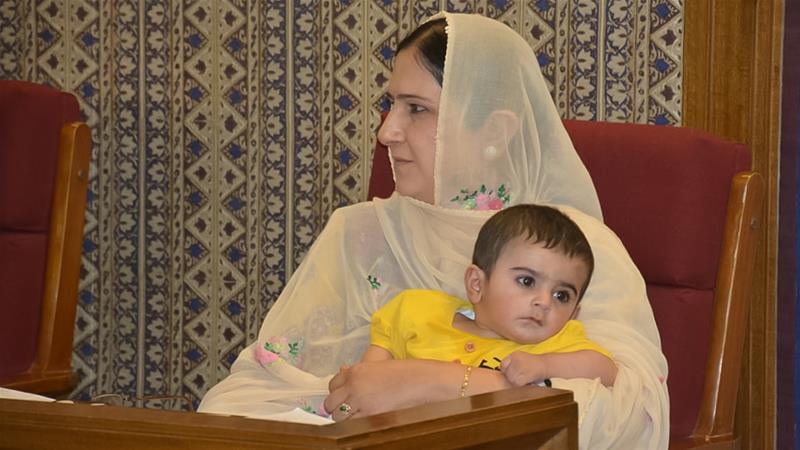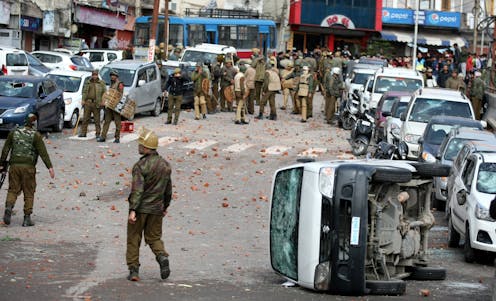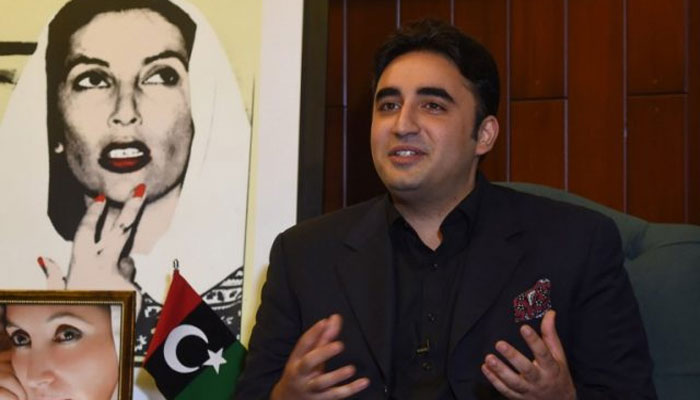M WAQAR..... "A man's ethical behavior should be based effectually on sympathy, education, and social ties; no religious basis is necessary.Man would indeed be in a poor way if he had to be restrained by fear of punishment and hope of reward after death." --Albert Einstein !!! NEWS,ARTICLES,EDITORIALS,MUSIC... Ze chi pe mayeen yum da agha pukhtunistan de.....(Liberal,Progressive,Secular World.)''Secularism is not against religion; it is the message of humanity.'' تل ده وی پثتونستآن
Thursday, May 23, 2019
Pakistani legislator kicked out of assembly for bringing her son
By Shereena Qazi
Mahjabeen Sheran, a member of the Provincial Assembly of Balochistan in Pakistan, who was asked to leave for bringing her unwell infant to the house, has vowed to campaign for establishing daycare centres in assemblies and government departments.
On April 29, Sheran was criticised by staff and fellow members of the assembly for bringing her seven-month-old son, who was sick and could not be left at home, to the chamber for a session. She was asked to leave the session.
"I was torn between attending the session and staying home taking care of my son," Sheran told Al Jazeera.
"So, I decided to bring my son because I didn't want to miss the session."
"We must respect those women who work and also take care of their household. It is not easy and we face challenges on daily basis."MAHJABEEN SHERAN, A MEMBER OF THE PROVINCIAL ASSEMBLY OF BALOCHISTAN
Sheran is from Balochistan's Kech district and became a member of the assembly in 2018 on a reserved seat for women. She said it was the "worst" situation for her when she had to decide between taking care of her son and attending work.
"I felt embarrassed because some men in the session were making jokes and smirking about me bringing my son. At that point, I looked for someone to stand up for me and support me, but no one did," she said.
Several times in the past, Sheran had requested the assembly's secretary for a spare room to turn it into a daycare facility. Her request was denied repeatedly.
The legislator is now seeking support from political leaders and activists to establish daycare facilities in government offices and assemblies.
She said she will also propose a bill to allow mothers to bring babies to the assemblies and "to share the experiences of working mothers with men".
'Respect women'
A daycare centre was inaugurated in Parliament House in Pakistan's capital city Islamabad two years ago.
"How can a country succeed when the most important part of the society [women] are treated this way? Such incidents discourage women of this country from succeeding and being independent," Mumtaz Mughal, the regional director of Aurat Foundation, a non-profit organisation that works on women's rights and gender equality, told Al Jazeera.
"The fact that Mahjabeen Sheran was asked to leave for merely bringing her son to the session tells us that the patriarchal mindset exists heavily in our society and we have a lot of work to do in order to change that."
Sheran said she has seen women lawyers, activists and politicians taking their children to work if they have to. She said she was disappointed to know that bringing children to the assembly in Pakistan was against the law.
In a similar case as Sheran's, a Japanese politician, Yuka Ogata - a member of the Kumamoto City Assembly, was criticised by fellow members for trying to bring her baby to a council session. She said in her statement that she wanted to show the difficulties when women juggle with careers and raising children.
How can a country succeed when the most important part of the society [women] are treated this way?MUMTAZ MUGHAL, REGIONAL DIRECTOR OF NON-PROFIT ORGANISATION AURAT FOUNDATION
Mette Abildgaard, a Danish MP, was asked to leave parliament after she brought her baby to the chamber in March this year.
In 2018, New Zealand Prime Minister Jacinda Ardern made history by attending the United Nations General Assembly accompanied by her newly-born baby.
Australian Senator Larissa Water became the first politician to breastfeed her two-month-old daughter during a vote in the country's parliament in 2017.
An Argentinian politician, Victoria Donda Perez, was praised for breastfeeding her infant daughter during a parliamentary session in 2015.
Back in Pakistan, Sheran's case went viral on social media, receiving support from people from across the country.
"People from all over the country were contacting me expressing their support for me and my campaign," she said.
"We must respect those women who work and also take care of their household. It is not easy and we face challenges on daily basis."
How the dangerous evolution of Pakistan’s national security state threatens domestic stability
By Robert G. Patman, Dr Arshad Ali
At great economic cost, Pakistan has constructed a nuclear-armed national security state over many decades to counter the Indian “threat”. This somewhat ossified approach has done little to improve security in South Asia.
It is also generating dangerous new threats to stability inside the country.
The militarization of Pakistan during the Cold War
Kashmir has been in a geopolitical limbo, with a disputed border, ever since partition in 1947. The conflicting Indian and Pakistani claims to sovereignty over Kashmir have helped generate the emergence of a Pakistani national security state in which the military became a dominant political actor.
The Pakistan military has received the lion’s share of national resources and began acquiring nuclear weapons during the 1970s. But it has also played a key role in framing Islamabad’s national security policy.Because Pakistan was struggling to compete with India, which is much larger in terms of territory, population, economy and military power, it needed external support. The Cold War provided an opportunity for Pakistan to make an alliance with the US, which was looking to contain the Soviet Union in South Asia. In February 1954, the Eisenhower administration announced it was providing military assistance to Pakistan.American assistance significantly strengthened the role of the military and enabled it to become the key actor in Pakistan’s foreign and security policy. The civilian bureaucracy cooperated with the Pakistani military in a pragmatic fashion to help it exercise political control during the Cold War.The Pakistani judiciary provided legal justifications for military rule when required. Consequently, the Pakistani military ruled the country directly for 24 years from 1947 to 1988. During this period the parliamentary system was undermined and a “controlled democracy” became the norm.
Growing post-Cold War threats
The Pakistani military also used its political and administrative autonomy to establish its own commercial ventures. This included road building, real estate, cement factories and private banks. By establishing its own version of a military industrial complex, the Pakistani military assumed a dominant position in the country’s national security policies.The Inter-Services Intelligence (ISI) emerged during the Soviet occupation of Afghanistan in the 1980s as a second key player. Civilian political parties or leaders in Pakistan were effectively constrained in national security decision-making by a military-led coalition that encompassed intelligence agencies, the civil bureaucracy and the judiciary.The end of the Cold War did little to diminish Pakistan’s fixation with the Kashmir conflict. Its intense rivalry with India continued in South Asia, including in war-torn Afghanistan. But the post-Cold War era changed the strategic equation.First, India embarked on a successful process of economic liberalisation in the early 1990s. This significantly widened the wealth gap between a rising India and a desperately poor Pakistan.Second, the US no longer needed Pakistan after the Soviet withdrawal from Afghanistan in the late 1980s and drastically reduced its military support for Islamabad.
But the Pakistani national security state showed little willingness to adapt to the realities of a transformed strategic environment. Islamabad persisted with its involvement in proxy wars in Kashmir. It supported militant Islamist forces opposing the Indian presence and, in Afghanistan, it supported Taliban militants in a bid to counter Indian influence in that country.
In the post-Cold War context, Pakistan’s stance on national security has largely failed to balance India’s preponderance and generated significant new internal security threats from factions of Tehrik-e-Taliban (TTP) and other militant groups.
The war on terror and Pakistan’s dangerous double game
The 9/11 attacks helped restore Pakistan’s position as a key strategic partner of America in Washington’s war on terror. But the country’s national security state continued to pursue its anti-Indian agenda in Kashmir and Afghanistan, while ostensibly cooperating with US administrations in hunting down al-Qaeda terrorists in South Asia.
Osama bin Laden was eventually killed at a hideout inside Pakistan in May 2011, not far from a major Pakistani army base. This double game not only frustrated Washington, it also led to dangerous blowback at home.
Since the US-led war on terror, Pakistan’s internal security has been increasingly threatened by the activities of Taliban militants and the influx of al-Qaeda operatives into the country from neighbouring Afghanistan.
Over the past decade, Pakistan has experienced a gradual shift to more democratic processes. Nevertheless, the military has continued to play a dominant role in the making of foreign and security policy.
Today, Pakistan is a country in desperate need of peace and stability. But unless Pakistan’s national security state is reformed and brought under full civilian control, it is difficult to see how the country can reverse an ominous pattern of domestic instability and economic decline.
http://theconversation.com/how-the-dangerous-evolution-of-pakistans-national-security-state-threatens-domestic-stability-116886
Rape Allegations Against Pakistan’s Police
Saroop Ijaz
Prosecute Officers Implicated, Enact Wider Reforms.A 22-year-old woman in Rawalpindi district in Pakistan’s Punjab province reported to police that four men had abducted her at gunpoint and raped her. Most disturbingly, she alleged that three of the four assailants were police officers.
The authorities have since arrested all four suspects and suspended three police officers as criminal investigations proceed.
This is one of several recent incidents in which Pakistani police – the very people who should be tackling rape and protecting the public – have been accused of committing sexual violence. In April 2019, an assistant sub-inspector of police was charged with raping a woman in Bahawalpur district, Punjab. The woman had earlier gone to the police station to report that she had been gang raped, but says that the official later called her back to the station claiming he needed to record her statement, and then raped her. In September 2018, another police official was charged with raping a 6-year-old girl in Dera Ghazi Khan district, Punjab.
These cases highlight the difficulty Pakistan’s sexual violence survivors have getting recourse. Sexual assault victims often fear pressing charges because they and their families may become subject to harassment and intimidation by the police, due to harmful gender attitudes and pressure from perpetrators. Without proper witness protection, survivors can easily be intimidated into silence. These barriers reflect deeply entrenched gender inequality within Pakistani society, including in state institutions such as the police and judiciary.
The prompt police response in the Rawalpindi case reflected in large measure the willingness of the victim to speak up and the impact of media coverage. Now it’s up to local authorities to fully and fairly prosecute those responsible, whatever their affiliation.
Pakistan faces grave security challenges that require a rights-respecting, accountable police force able to protect the entire population. When police become perpetrators of sexual violence, the credibility of all police are damaged and victims are even less likely to seek their help. Pakistani authorities need to act decisively. They should ensure that police officers responsible for crimes are appropriately held to account; undertake long overdue reforms to increase the recruitment, retention, and promotion of female police officers; and make sure that female police officers are deployed so that all survivors of sexual violence get the assistance they need.
Bilawal Bhutto warns federal govt over taking administrative control of three Sindh hospitals
Chairman Pakistan Peoples Party (PPP) Bilawal Bhutto Zardari has strongly condemned the taking over of three key hospitals of Sindh by the Federal government and termed it as an attack on provincial autonomy.
In a statement, the PPP Chairman said “the people of Sindh have invested billions of rupees on revolutionary improvements in Jinnah Postgraduate Medical Center (JPMC). National Institute of Cardiovascular Diseases (NICVD) and National Health of Child Health (NICH) after these hospitals were handed over to the province under the 18th amendment.”
Expansion of NICVD hospitals to several cities of the province has excelled the performance of Sindh government, which paid for expensive cardiac treatments of patients from all over Pakistan, he added.
Bilawal Bhutto Zardari said that taking over these main health infrastructures without waiting for the final verdict of the Supreme Court on a review petition filed by Sindh government has displayed the arrogance of the Federal Government and a challenging contempt of the supreme judiciary by PTI government.
“An admission by NAB Chairman that he is holding back inquiries of corruption against government ministers to stop its imminent fall and the PTI government’s contempt of court action have exposed the constitutional crisis that the country is currently facing,” the PPP Chairman said.
He pointed out that PPP’s Sindh government was spending Rs12.5 billion on NICVD and Rs4 billion to JPMC annually to ensure quality free of cost treatments to patients from all over Pakistan. Sindh government has been providing state of the art health facilities to people from every corner of the country without any charges.
Bilawal Bhutto Zardari made it clear that his Party and the people of Sindh wouldn’t allow anyone to usurp the hard-earned assets of health facilities and categorically said that resistance will be mounted at every available forum, warning the Federal government to withdraw the said notification before the public outrage mounted.
https://www.thenews.com.pk/latest/475302-bilawal-bhutto-warns-federal-govt-over-taking-administrative-control-of-three-sindh-hospitals
Subscribe to:
Comments (Atom)




